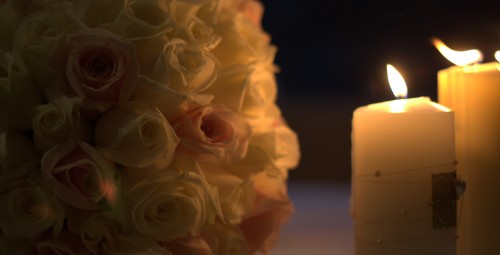Weddings 101
November 11, 2011Now that you’ve made the decision, it’s about time to start thinking about the wedding. Weddings come in many shapes and sizes: big and small, formal and casual, and they join couples of many kinds in many places with many different types of people officiating.
What is a Wedding?
A wedding celebrates the love shared between two individuals. It is also the ceremonial act during which two people commit to one another publicly. A wedding is a joyous occasion, a day of recognition and affirmation of the great love a couple shares. It provides a way for the couple’s community to affirm their support for that relationship and the family the couple builds together, and for the couple to affirm the importance of their community in upholding their life together. And even beyond that, a wedding is a sacred ritual that reminds us that the Holy is present wherever there is great love.
Marriage both acknowledges an emotional bond between two people, and strengthens that bond one that is made in the company of a community of people, usually family and friends that acknowledge that bond and agree to support the couple in their joined lives. While weddings can and should be fun, they are also one of the most important occasions in a couple’s life together, and they can get complicated. Yet even with this “stressful adventure,” a wedding ceremony is a unique and beautiful celebration that expresses all that is in the hearts of the couple, their friends and their families.
Types of Weddings
Religious
A wedding is about more than just the romance of two people getting married. During a wedding ceremony a couple makes a commitment, in the presence of the holy and their cherished community, to love one another through the good and the not-so-good. Even beyond the wedding couple, marriage reflects to a hurting world the blessing of committed love, and reminds other married couples of their wedding vows.
Cultural and social
We know that families take many forms: “traditional” nuclear families with a married couple (same or opposite sex) and children, couples that have no children, single parents, extended families living together, and families of choice which may have no legal or biological ties but are instead joined only by love and commitment. For many couples, marriage is merely an acknowledgement of a reality that already exists for them: that they are joined in a bond for life. That having been said, marriage is special. The religious commitment couples make to each other in the wedding ceremony creates a treasured and specific bond, and that’s a solemn and beautiful thing.
Legal
To have a marriage recognized by the state, there are certain requirements that must be met, including obtaining a marriage license and having an approved officiant. Sadly, not all states recognize marriages between couples of the same sex. Legal marriage conveys certain legal privileges, including tax benefits, power-of-attorney, and custodial rights—privileges which are denied to many same-sex couples and which most heterosexual couples take for granted. Many couples (including heterosexual couples) and ministers feel that acknowledging this injustice is an important part of the wedding ceremony.
Legal marriage inequality does not mean, however, that same sex couples can’t be married in their own eyes and in the eyes of the faith. The deficiencies of state law in no way delegitimize the very real, very holy commitment a same-sex couple makes in marriage. Couples who live in a state that does not affirm same-sex marriage yet may wish to have a religious ceremony now and plan for a legal ceremony when marriage equality reaches their state. Others may wish to be married in a state that will legally affirm their marriage. Likewise, many heterosexual couples may choose to be married in a state that affirms same sex marriage, as a gesture of solidarity with the LGBT community.
Crafting a Ceremony
There are many ways to arrange a wedding ceremony. Each religion and culture has its own customs and traditions, and each couple will have different ideas about what parts of their heritage they would like to have represented in their ceremonies. Remember, the most important thing about your ceremony isn’t that it be experienced as “contemporary” or “traditional” but that it be sincere and reflect each of you. Think about what you as individuals and a couple value and believe in, what inspires you, and try to convey that in your special day.
There is no one “right” way, but there are better ways to organize the parts of a wedding ceremony. See guidelines for a typical ceremony.
Choosing an Officiant
States have different laws regarding who may officiate (that is, conduct the ceremony and sign the certificate) at weddings. Most states permit ordained clergy and judges (including justices of the peace) to do so. Some states permit other government officials, and some states permit almost anyone, often with specific permission, to be an officiant. For the state where the wedding will be held, check the state house website for more information. Ordained clergy are often the best choice, because they bring a wealth of knowledge, skill, and insight to a wedding ceremony. They are, in effect, experts in marrying couples.
Renew Your Membership
We invite you to join your fellow CLFers to renew your CLF membership and stewardship of the CLF for another year.
Support the CLF
Can you give $5 or more to sustain the ministries of the Church of the Larger Fellowship?
If preferred, you can text amount to give to 84-321
Newsletter Signup
About
Quest for Meaning is a program of the Church of the Larger Fellowship (CLF).
As a Unitarian Universalist congregation with no geographical boundary, the CLF creates global spiritual community, rooted in profound love, which cultivates wonder, imagination, and the courage to act.
Contact
Church of the Larger Fellowship Unitarian Universalist (CLFUU)
24 Farnsworth Street
Boston MA 02210



